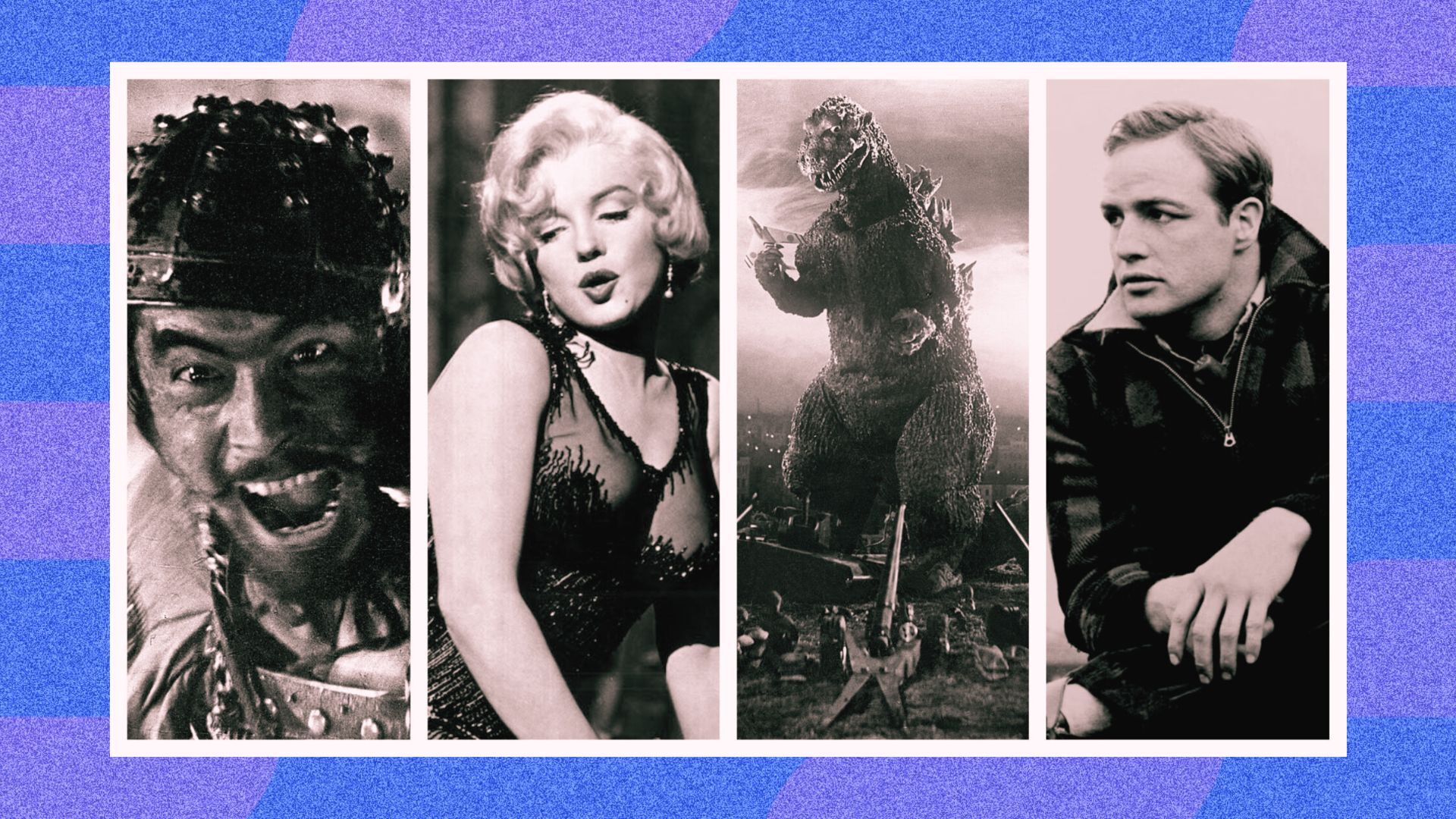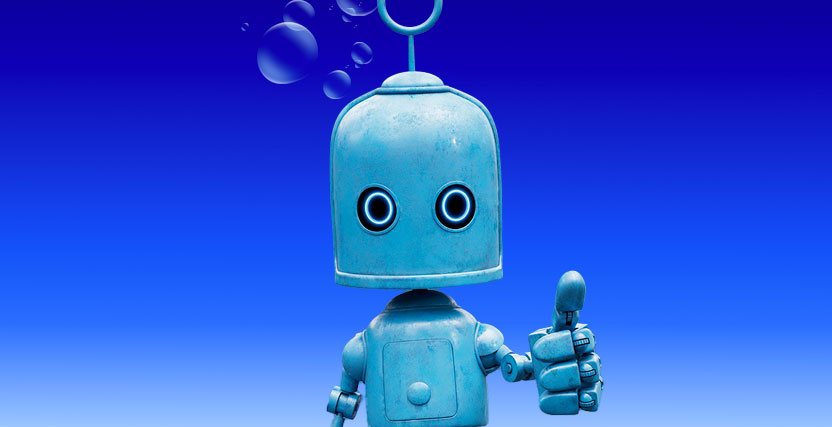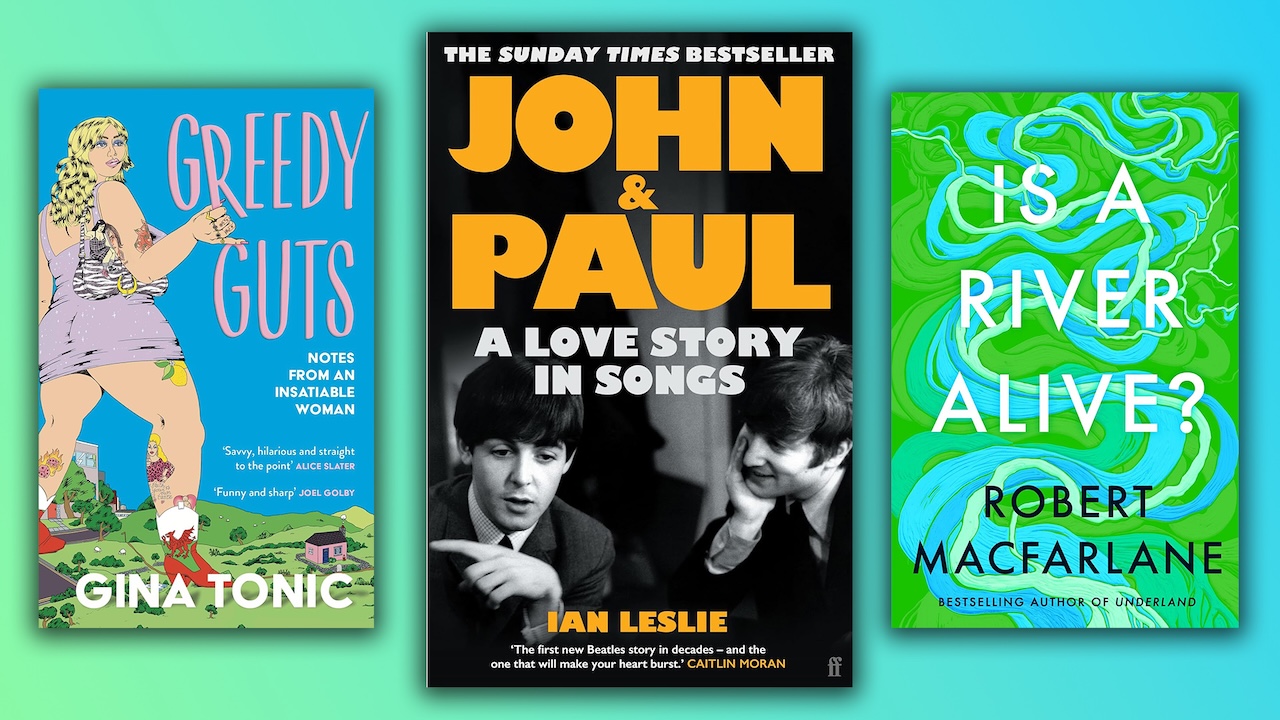
Our non-fiction book picks for Spring include titles on the mess of the manosphere, the future of the Baltics and the emotional lives of The Beatles.
We also see the return of the mighty nature writer Robert Macfarlane, explore two very different memoirs focusing on fatness and, well, Google searches, and we get schooled in the new concept of ‘moral ambition’ by Rutger Bregman that might just up-end your life.
Read on for the titles to expand your noggin' over the next few months.
- Looking for new fiction? Check out 10 must-read fiction books to see you through Spring
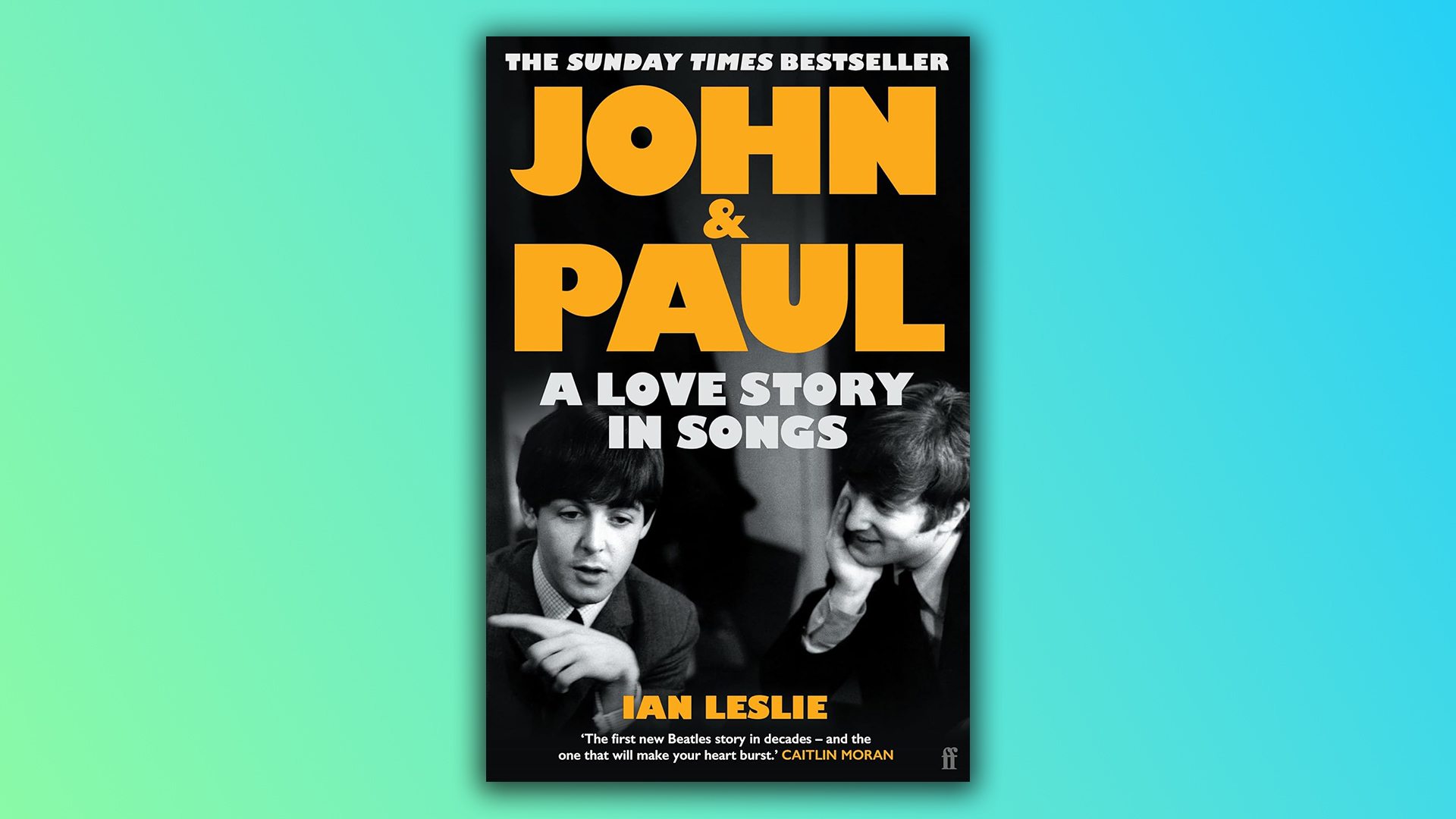
1. John & Paul: A Love Story In Songs(Ian Leslie)
There are two types of people: people who watched the Peter Jackson documentary Get Back and thought “well, that could have been done in two hours” and people who thought “I want more”. This gorgeous joint bio of the two Beatles is for the "more, please" group.
Ian Leslie’s previous books have looked at deceit, curiosity and conflict so you can see the appeal of Lennon and McCartney. John & Paul focuses on the actual songs, the sounds, the experiments, the albums and the performances, all through the lens of their relationship, emotional lives and shifting dynamics from when they meet at a 1957 fete in Liverpool through to Lennon’s death in 1980.
Leslie deconstructs the interlocked cliched personas of ‘Lennon’ and ‘McCartney’, showing again and again how Paul was tortured, artistic and a genius and how John had a secret, sentimental “soppy” side. He writes beautifully about the creative process behind individual tracks, focusing each chapter around one song: the sections around Strawberry Fields Forever, Penny Lane and A Day in the Life is dynamite.
There’s some creative license with his psychological insights and decoding of literary, autobiographical and personal lyrics but it’s all there to be picked over. And if you’ve read accounts of The Beatles before, the look at the post-”divorce” animosity and reconciliation through their solo projects feels particularly fresh. Actually, I might stick Get Back on again...
Most newsletters are rubbish. Ours isn't.
Get exclusive shortlists, celebrity interviews and the best deals on the products you care about, straight to your inbox.
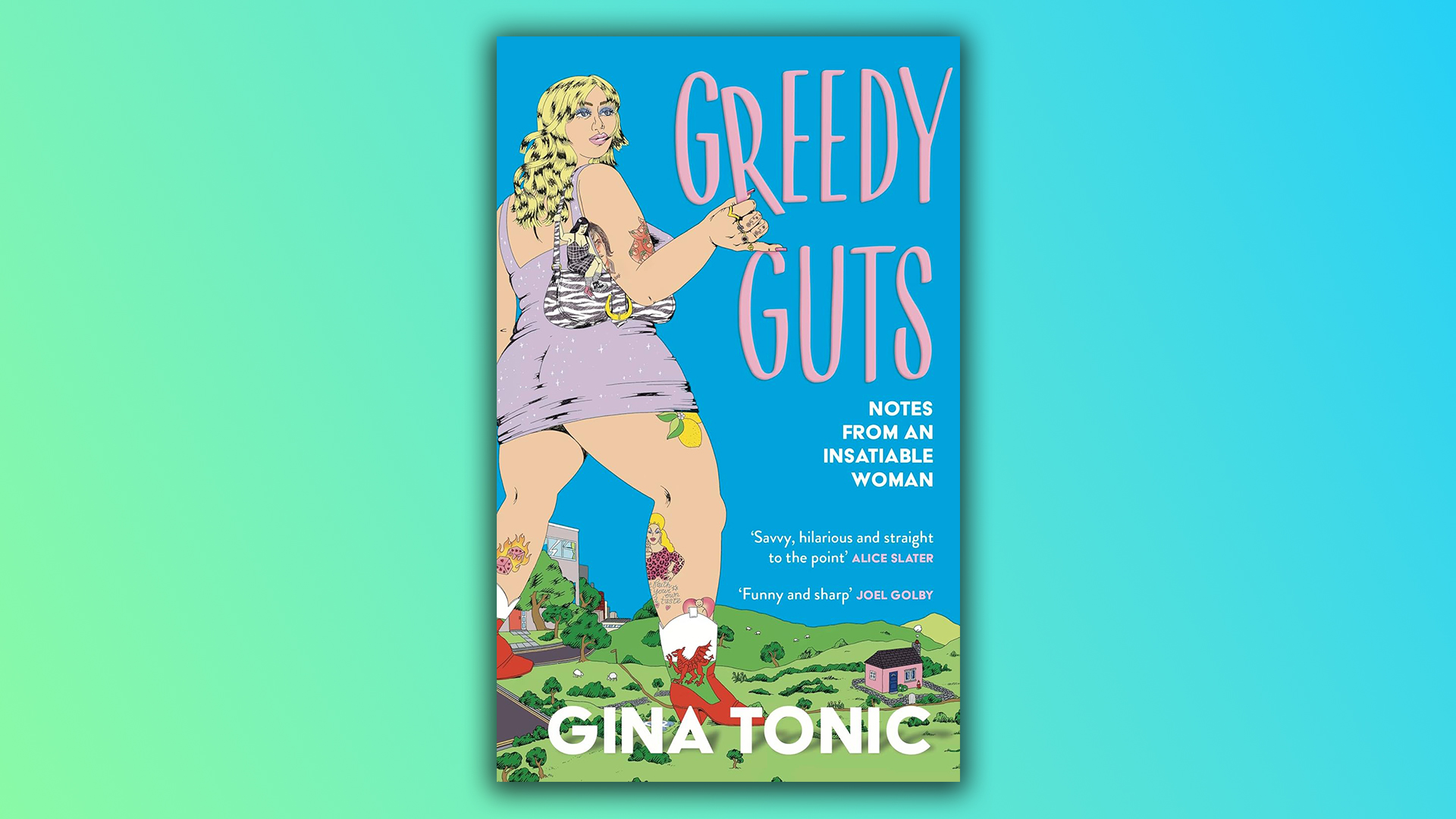
2. Greedy Guts(Gina Tonic)
One of the chapters in this collection of essays from Gina Tonic is named “The Time My Mam Gave Me a Short Back and Sides”. Which gives you a sense of the vibe. Ciders, pills and panic attacks here, lads.
This is a set of bolshy, honest essays about growing up as a working-class fat woman in the Welsh Valleys then coming-of-age on Tumblr and in Manchester flatshares. You might know Tonic as a senior editor at Polyester Zine and co-host of their podcast - she also launched The Fat Zine in the pandemic.
Her funny-sad tales of dancing on stage at Fat Pride, fingering in the toilets at clubs and dealing with fat fetishists are broadened out to make wider points about biases in healthcare, “good fatties” and “bad fatties” on social media and the history of the fat liberation movement.
This is an accessible entry point into these worlds and an essay in which Tonic deconstructs a troll’s message to her, line by line, is really affecting. Then, of course, she goes on to explain with glee how she worked out exactly who the troll was, with the help of internet sleuthing and a few of her mates. More memoirs like this one please.
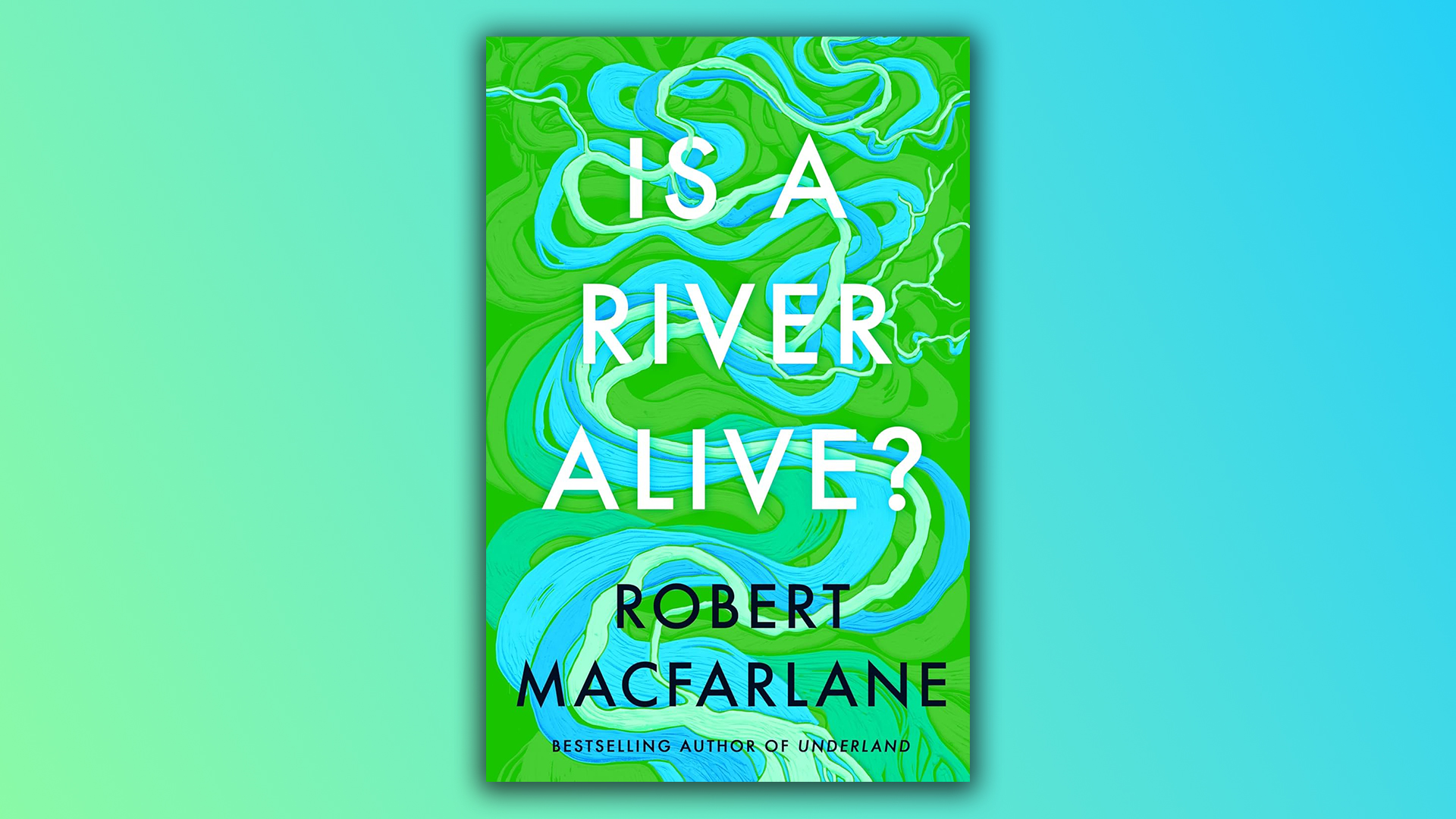
3. Is A River Alive?(Robert Macfarlane)
Robert Macfarlane is our literary Attenborough and he’s also so much more than that. Is A River Alive? is another masterpiece, another beautiful and thought-provoking book on nature after his last, astonishing project Underland. It also feels like something of a culmination of Macfarlane’s adventures, as though in his interviews with many artists, activists, scientists and indigenous peoples over the years, he was working towards this.
Over the course of three journeys - to the cloud-forests of Los Cedros in Ecuador, the polluted ghost rivers of Chennai, India and down the rapids of the Mutehekau Shipu/Magpie river in Canada - Macfarlane is asking big, bold questions about the anima or aliveness of natural ‘more-than-human’ phenomenon, the legal personhood and ‘Rights of Nature’ of rivers and forests, alongside witnessing what rivers and seas offer to people who are grieving and transforming themselves.
This thrilling, romantic, pragmatic, genre-defying book couldn’t come at a more important time for our rivers.
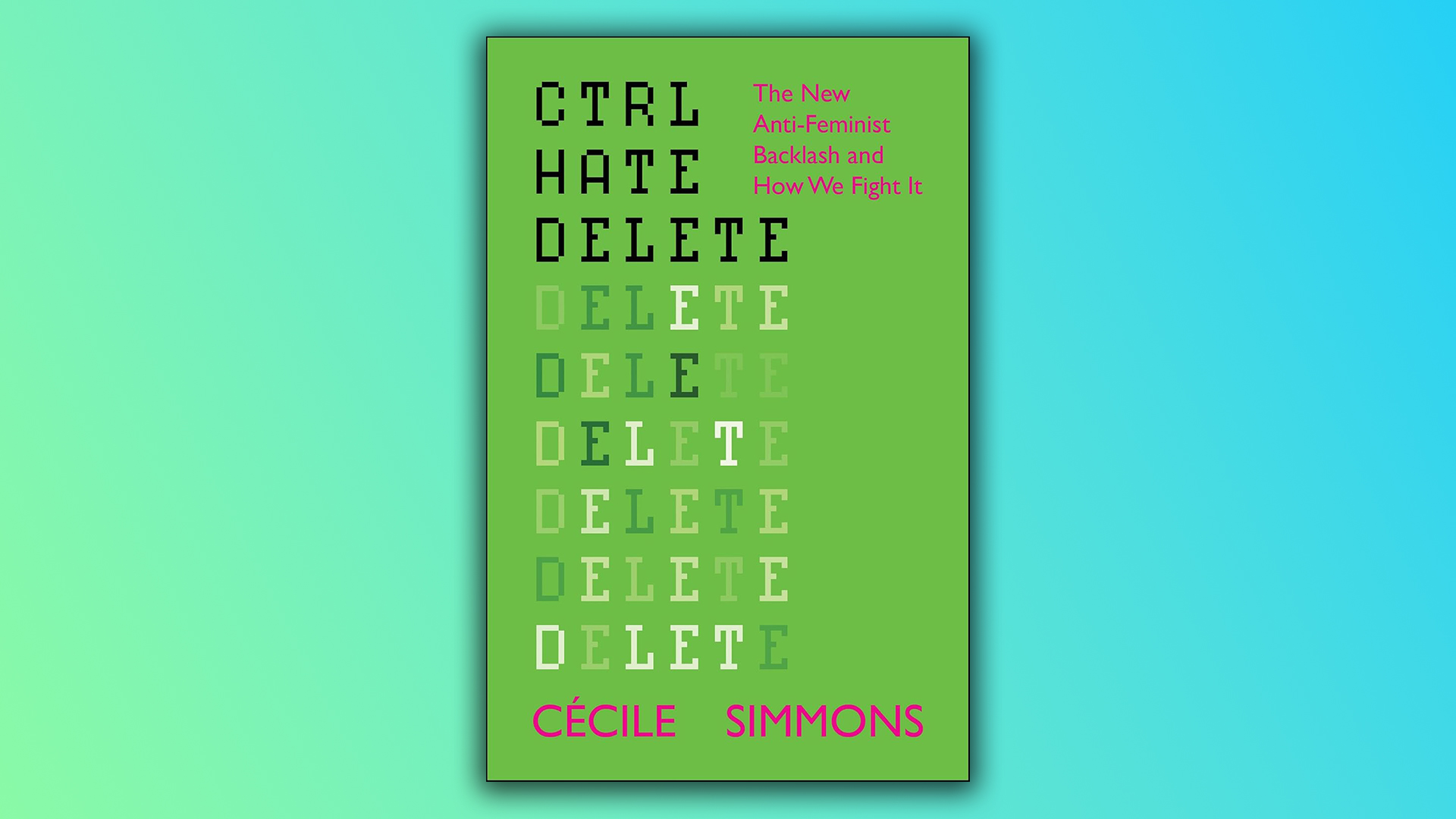
4. CTRL HATE DELETE(Cécile Simmons)
OK, this is your post-Adolescence read right here. This is a serious survey of the manosphere and the “anti-feminist backlash” online and off from Andrew Tate to trad wives. Researcher Cécile Simmons has immersed herself in these online subcultures and here she joins the dots between groups you may have heard of, from pick-up artists and red-pilled wellness influencers to anti vaxxers, webcam scammers and crypto grifters.
Some trends, like the ‘rolling coal’ trucker protests, might be totally new to you but Simmons knits it all together in a way that makes sense, while exploring the reasons behind real feelings of insecurity and loss of control.
How is Johnny Depp connected to Saudi Arabia? What are Rumble and SubscribeStar? Why is eating meat so important to some influencers? CTRL HATE DELETE answers these questions and honestly, it’s a lot if you’re not used to hanging out in these corners of the internet.
This book is both terrifying and hopeful, slightly on the academic side but with plenty of real world, social media and pop culture examples to jump off from. The second half features the people who are fighting back, from movements like Movember to IRL men’s circles to the YouTubers like ContraPoints who debate male supremacists online.
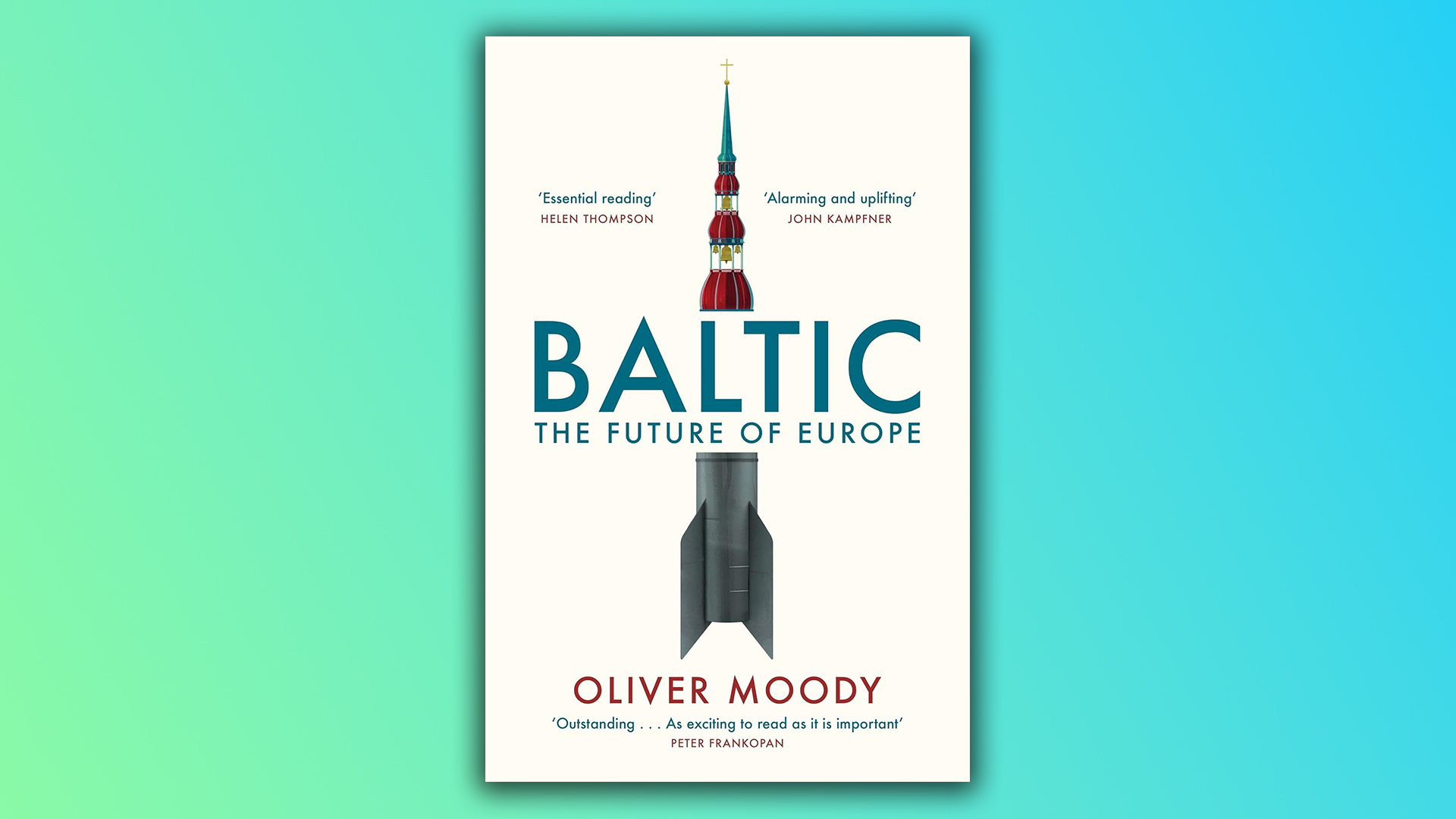
5. Baltic: The Future of Europe(Oliver Moody)
A billboard went up recently that read ‘Ever heard of Riga, Tallinn or Vilnius? If we abandon Kyiv, you will.’ It could have been an ad for this superb book on the Baltic countries, written by Oliver Moody, the Berlin bureau chief for The Times. With potted histories of the last century or so of Estonia, Finland, Latvia, the Baltic sea itself, Lithuania and Poland, Moody covers war, politics, foreign policy, language, business and even national myths from the Krolle Bolle of the Danish island of Bornholm to Latvia’s Bear-Slayer.
Moody is extremely well-sourced with current and former heads of state, prime ministers, security and military experts providing the commentary on what western Europe can learn from eastern Europe alongside insight into the full Putin playbook of disruption and disinformation over the past decade. Moody gets the adrenaline going in the last few chapters especially as he games out multiple scenarios on how war in the Baltics might be triggered (we see you, Suwalki Gap) and how the Baltics, Europe and NATO might respond. This should be mandatory reading, honestly.
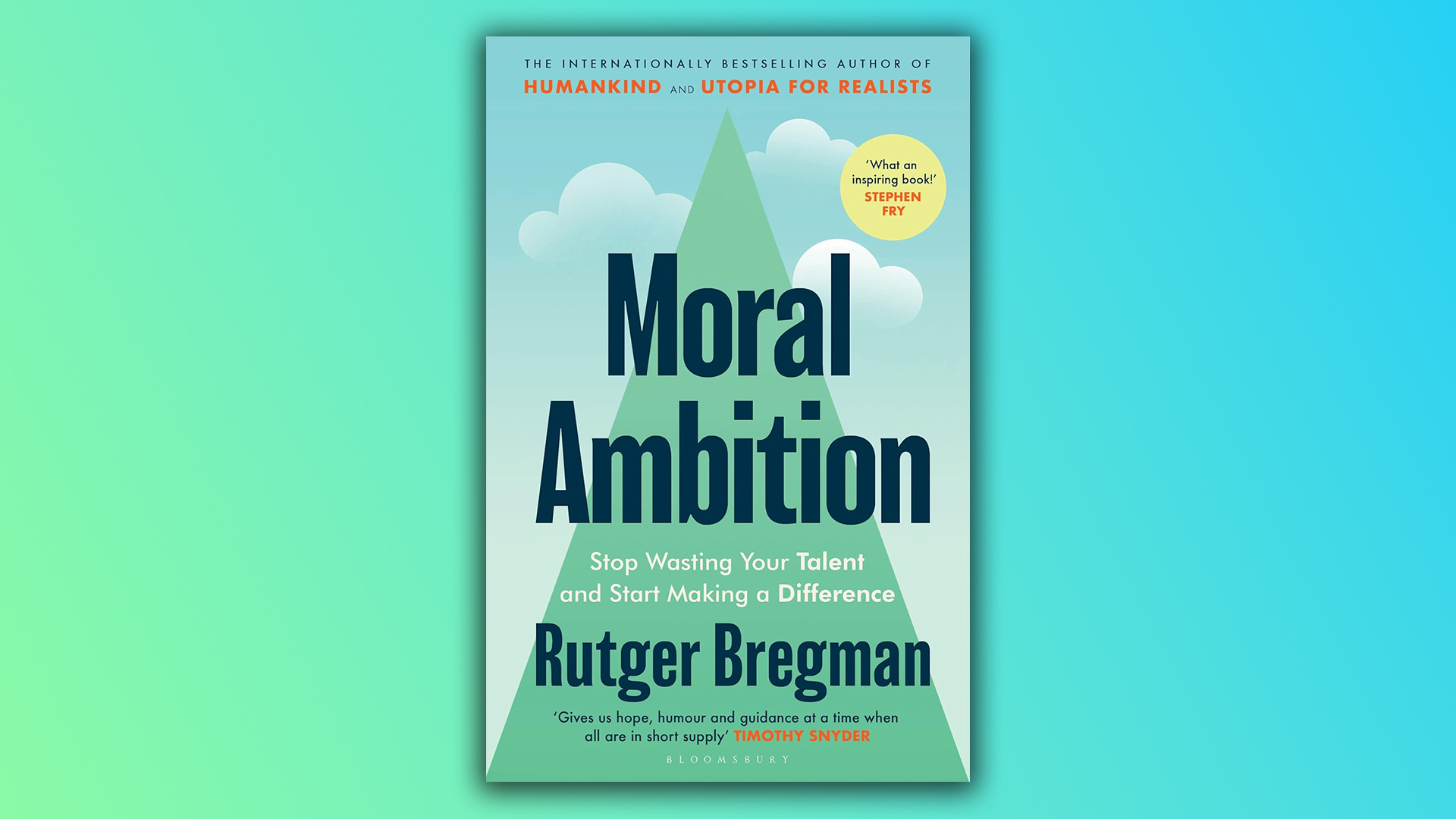
6. Moral Ambition(Rutger Bregman)
Historian Rutger Bregman once told a group of billionaires to their faces that they need to start paying more tax so it’s clear he just does not have time for anyone’s BS. His new big idea, Moral Ambition, is a cross between intellectual self-help (that “won’t make your life easier”) and a Malcolm Gladwell-style series of stories on a theme. He is not afraid to zoom out. It has graphs and lists and spells things out so clearly you start to think - is this all a bit simple? - until you look at how the world is run. Perhaps not. And Bregman starts with the timely question: would you have actually joined the resistance in World War Two?
Building on David Graeber’s theory of Bullshit Jobs - a lot of people work in office jobs that serve no real purpose - and perhaps Alain de Botton’s idea on underused “human capital” - Bregman argues that many talented people are wasting their lives in corporate, non-impactful or harmful jobs and careers while others retreat into making minimal impact only, growing vegetables in their allotments.
He wants us instead to be both idealistic and ambitious about winning, at scale. So once he has named the concept, to start the conversation, and outlined the basic case, he gives us some fascinating inspiration in the form of individuals and small groups from abolitionists, civil rights organisers, suffragettes, lawyers, inventors and philanthropists, ending on what he believes are the big challenges and moral issues facing humanity. So, you know, get on it.
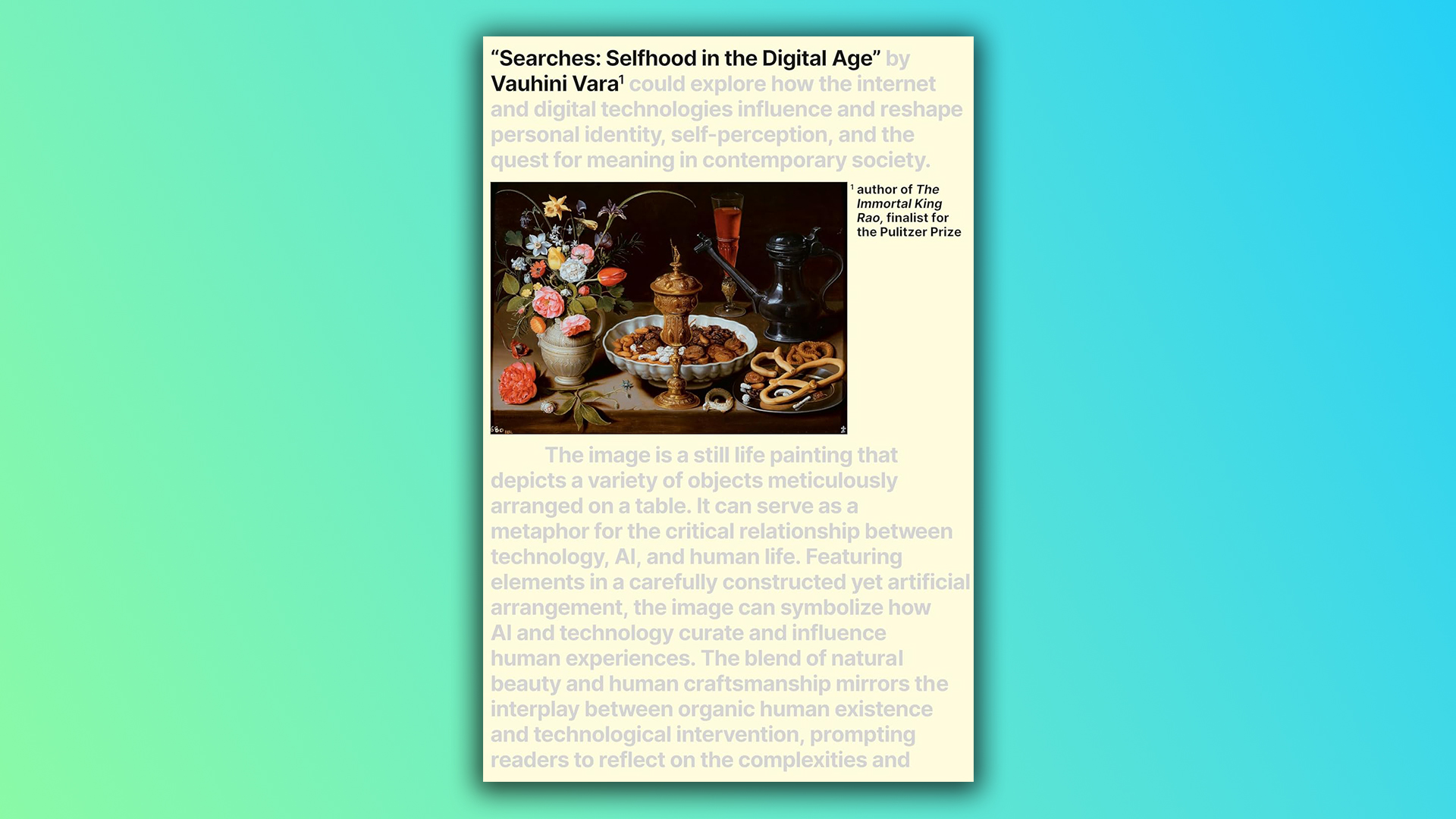
7. Searches: Selfhood in the Digital Age(Vauhini Vara)
One thing’s for certain: you’ve never read a book quite like Vauhini Vara’s Searches.
We get to see the novelist and journalist’s Google searches, her Amazon orders, her X (Twitter) interests, her chatbot queries and her Instagram photos. And not highly curated excerpts but nowhere-to-hide lists and lists of what Vara has typed into the internet, what she has bought and what advertisers think she is interested in.
These experiments combining memoir and commentary on modern tech are moving, incredibly personal and at times intentionally frustrating on account of the polite, banal chunks of ChatGPT text that thread through the narrative. But it all serves the themes she’s trying to push and pull at. A number of Vara’s articles including Searches and Ghosts, a story about her sister’s death from cancer, which was ‘co-written’ with ChatGPT and went viral in 2021, formed the basis of this book which is interested in Big Tech, AI bias, intimacy, grief and where exactly humans fit into the future of technological innovation.
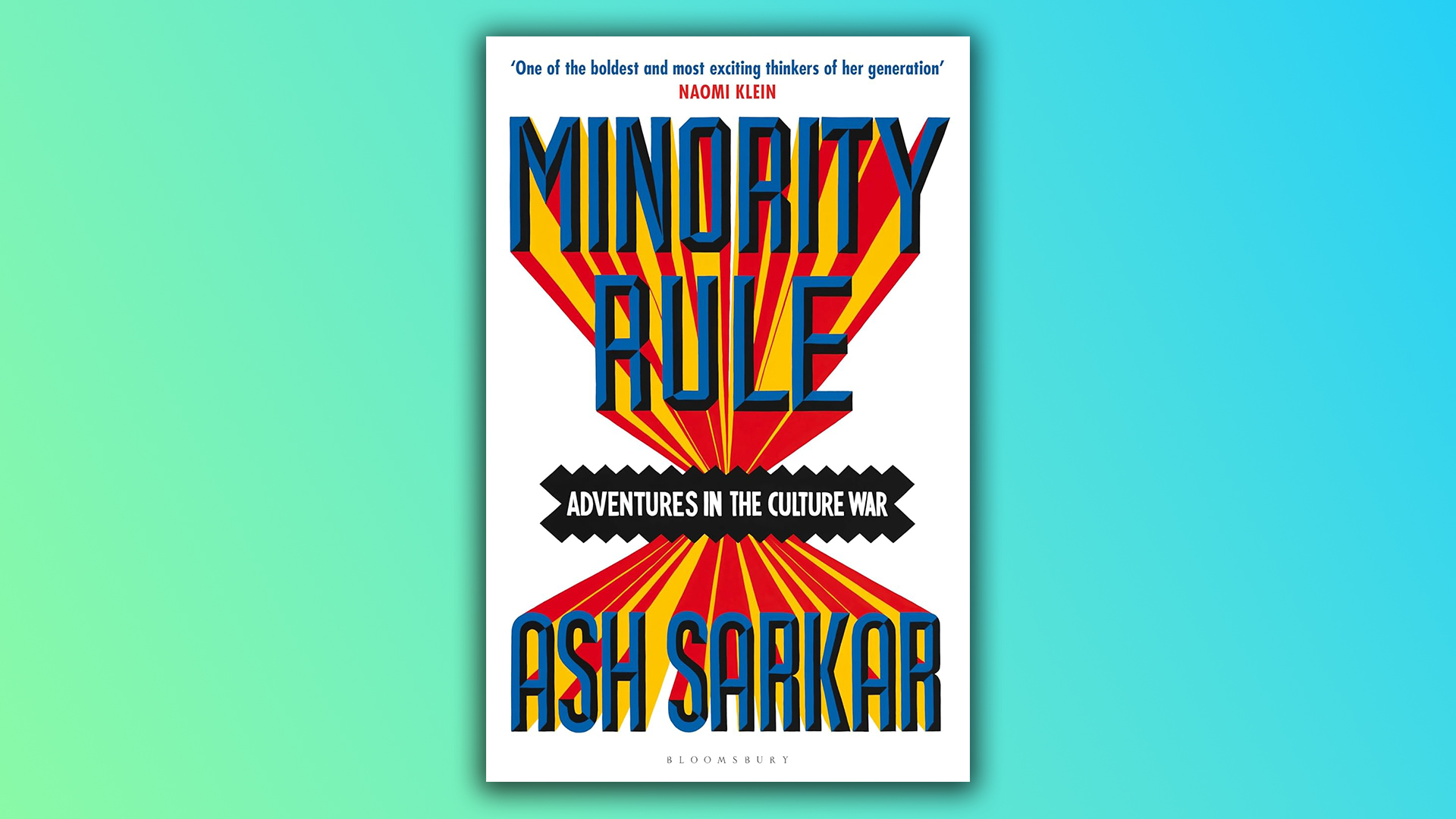
8. Minority Rule: Adventures In The Culture War(Ash Sarkar)
Released in February and an immediate Sunday Times bestseller, Minority Rule is the first book from Novara Media’s Ask Sarkar, or @AyoCaesar as she appears in the social media culture war trenches. The thrust of what she’s outlining here focuses on how politicians, the right-wing media and the algorithms have all converged on a story of a minority elite of woke metropolitan progressives who get all the attention and hold increasing power in the UK. She explores how Piers Morgan, Dominic Cummings and yes, Matt Lucas’ Vicky Pollard from Little Britain, have all driven a wedge between “the white working class” and the rest of her expansive, Marxist definition of the working class.
Sarkar gets into the left’s mistakes, her own mistakes (debating whether Apu from The Simpsons is racist on Sky News, etc) and her feelings about idiotic advisers and too-chummy lobby journos with wit and candour. She also outlines some of the demographic panics that distract from organising around wages, workers’ rights, housing, inequality, anti-racism and public services, against an extractive ‘rentier’ class that doesn’t care. And her analysis of the 2011 riots in Tottenham and the summer-of-2024 riots, sparked by the violence in Southport, is fresh and fascinating.
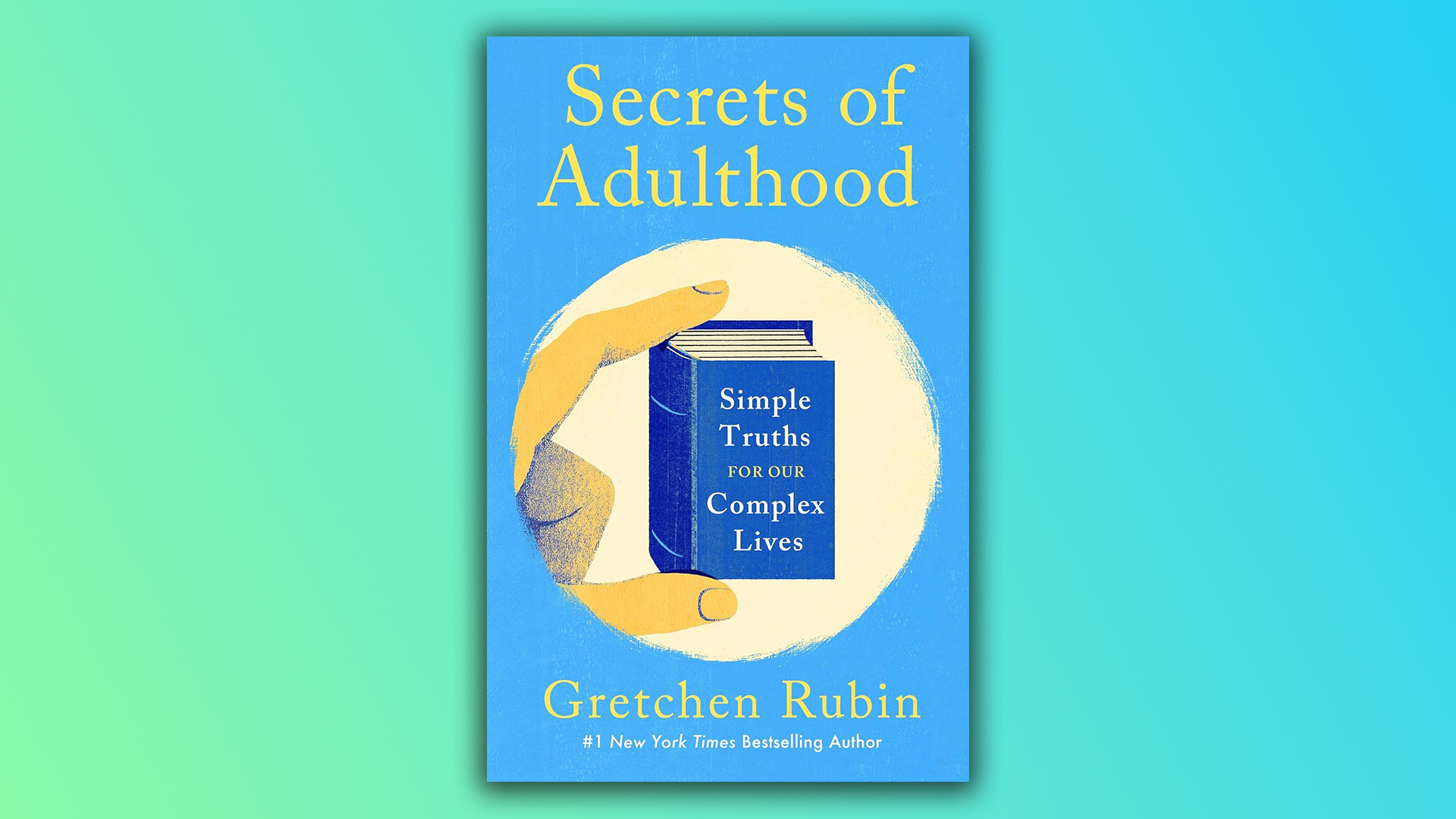
9. Secrets of Adulthood(Gretchen Rubin)
“More lawn, more mowing.” Secrets of Adulthood is a tonic that provides the dopamine hits of self-improvement cliches on Instagram but with a much higher level of quality.
This compact collection of aphorisms from Gretchen Rubin is organised by theme: adventure, relationships, creativity, dilemmas, procrastination, getting it wrong. The “brief and sharp” statements, with a selection of quotations from famous and not-so-famous writers, artists and philosophers up top, offer a mix of common sense, catchy advice and food for thought, to dip in and out of, without the trash ideology that comes along with a Jordan Peterson-type.
A nice gift for teens, students or just anyone going through it and in need of a nudge right now (including you).
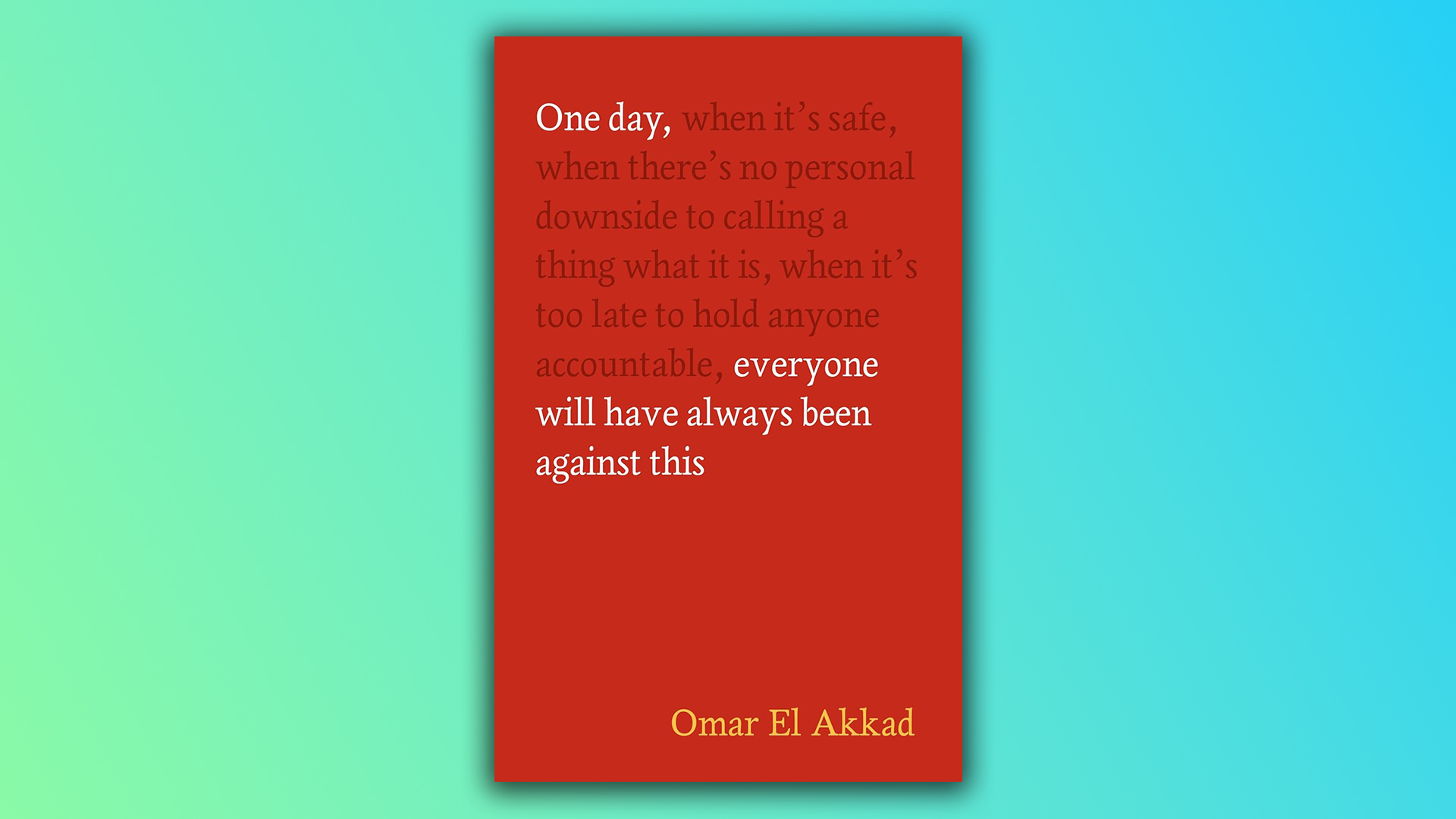
10. One Day, Everyone Will Have Always Been Against This(Omar El Akkad)
A slim volume, this is journalist Omar El Akkad’s attempt to contend with Israel’s war in Gaza. At this “weightless time” between the front pages and the history books, he is preoccupied with questions of who in the West carries on with their normal life and who feels they can’t.
El Akkad was born in Egypt, growing up in Qatar then Canada, and now lives in Oregon in the US. His consideration of moral ceilings and floors - for politicians, the media and individuals - doesn’t just grab you by the lapels, as the saying goes, it turns them inside out and shows you what you’ve really been wearing.
This isn’t straightforward reportage, though El Akkad does include scenes from his war reporting in Afghanistan and covering Guantanamo Bay. It’s more imagistic, poetic-but-lucid writing intended to stir us into action. He is concerned with the hypocrisy and cowardice of Western media and arts organisations on Palestine, the “hollow” at the centre of neoliberalism and how colonialism is intertwined with the climate crisis.
How much will we let things get worse rather than better? Ultimately, El Akkad believes that small acts - “throwing sand in the gears” - do matter in troubling times.
Missed our earlier book lists this year? Check out:

